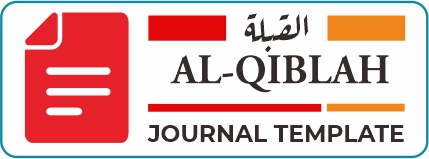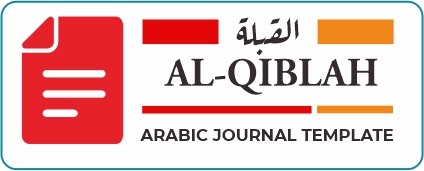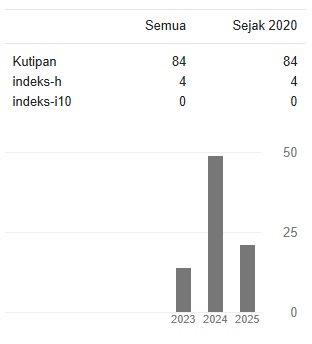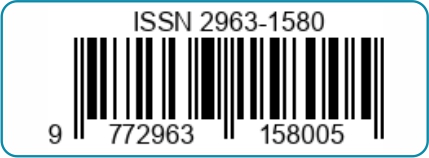Islam dan Globalisasi: Formulasi Solutif terhadap Krisis Identitas Muslim
Islam and Globalization: Solutive Formulation to the Muslim Identity Crisis
DOI:
https://doi.org/10.36701/qiblah.v3i3.1431Keywords:
globalization, Islam, identity, muslimAbstract
This research was conducted with the aims of: knowing the meaning of globalization; (2) knowing and analyzing the negative impact of globalization on the identity of the nations; and (3) knowing and analyzing solutions to confront the impact of globalization towards muslim identity. This research used qualitative descriptive approach with library research method. The sources of this research data are books related to the history and development of globalization. The results show that: (1) globalization means bringing the world closer together through great advances in communication, transportation, satellites and the internet, openness of information flows, accompanied by one-pole power (in this case America with its influence of Zionism) that seeks to unite all economic, political forces (including the military) and thought to fulfill its interests; (2) the negative impact of globalization on the nations of the world, especially in the Islamic world, is that globalization has a high potential in reshaping the basic understandings of Muslims about nature, people and life, to be replaced by the understanding that has been commonly believed in the West; and (3) Islam and muslims can actually use globalization as an effective way to strengthen their identity. The use of globalization in order to affirm the identity of Islam and muslims is of course based on the objective view that this phenomenon does not fully contain negative values and holds a very powerful force, depending on "who and how" it is utilized. The beautiful collaboration between scholars, thinkers, scientists, experts, culturalists, and muslim perpetrators of globalization in formulating elements of globalization appropriately is an expectation for the strengthening of muslim identity in the midst of the current globalization.
Downloads
References
Anwar ‘Isyqi. Al-Syayathin Takhtabi’ fi al-Tafashil ((Silsilah Kitab al-Ma’rifah 7-Nahnu wa al-‘Aulamah Man Yurabbi al-Akhar). Cetakan pertama. 1420 H.
Bachtiar Effendi. Islam dan Nasionalisme Tidak Mesti Bertentanga. Wawancara dengan situs Islamlib.com tanggal 29-08-2005. http://islamlib.com/idindex.php?page=article&mode=print&id+870.
Hamid Fahmi Zarkasyi. Merespon Globalisasi dengan Plurasime Agama. http://www.insistnet.com/index2.php?option_content&task=view&id=25.
Khalid ibn ‘Abdillah al-Qasim. Al-‘Aulamah wa Atsaruha ‘ala al-Hawiyyah. http://www.islamtoday.net/print.cfm?artid=7335.
Mahmud Samir al-Munir. Al-‘Aulamah wa ‘Alam Bila Hawiyyah. Dar al-Kalimah. Mesir. Cetakan pertama. 1422.
Muhammad bin Isa al-Tamimi. Al-‘Aulamah wa Qadhiyah al-Hawiyah al-Tsaqafiyah. Cetakan pertama. 1422.
Muhammad Quthub. Al-Muslimun wa al-‘Aulamah. Dar al-Syuruq. Kairo. Cetakan pertama. 1421 H.
Sa’ad al-Bazi’i. al-Mutsaqqafun wa al-‘Aulamah wa al-Dharurah wa al-Dharar (Silsilah Kitab al-Ma’rifah 7-Nahnu wa al-‘Aulamah Man Yurabbi al-Akhar). Cetakan pertama. 1420 H.
Samuel Huntington. Shadam al-Hadharat (Clash Civilication). Penerjemah ke dalam bahasa Arab: Thla’at al-Syayib. Cetakan kedua. 1999.
Shabri Abdullah. Al-‘Arab wa Muwajahah al-‘Aulamah (Silsilah kitab al-Ma’rifah 7-Nahnu wa al-‘Aulamah Man Yurabbi al-‘Akhar). Cetakan pertama. 1420 H.
Shabri Abdullah. Al-‘Arab wa Muwajahah al-‘Aulamah (Silsilah kitab al-Ma’rifah 7-Nahnu wa al-‘Aulamah Man Yurabbi al-‘Akhar). Cetakan pertama. 1420 H.
Yusuf al-Qaradhawi. Al-Muslimun wa al-‘Aulamah. Dar al-Tauzi’ wa al-Nasyr. Kairo. t.t.



 FOCUS AND SCOPE
FOCUS AND SCOPE EDITORIAL TEAM
EDITORIAL TEAM












